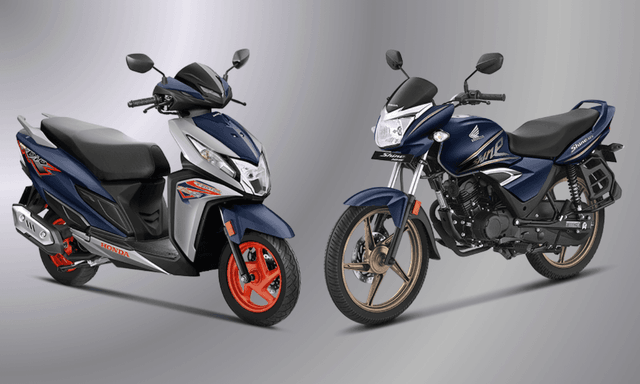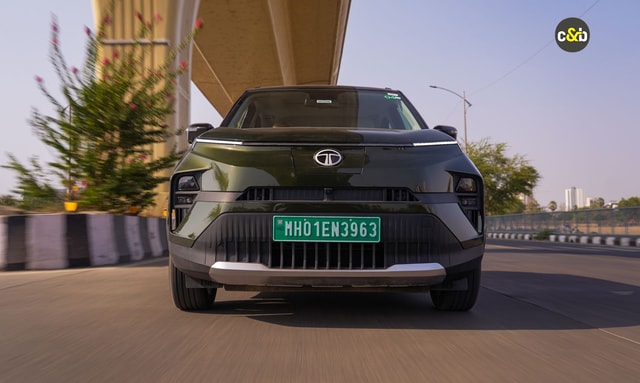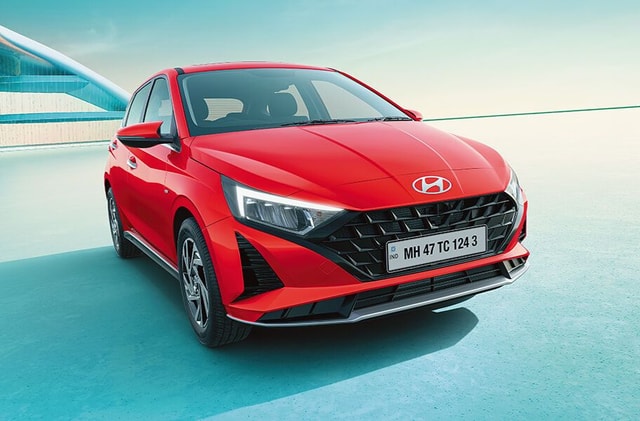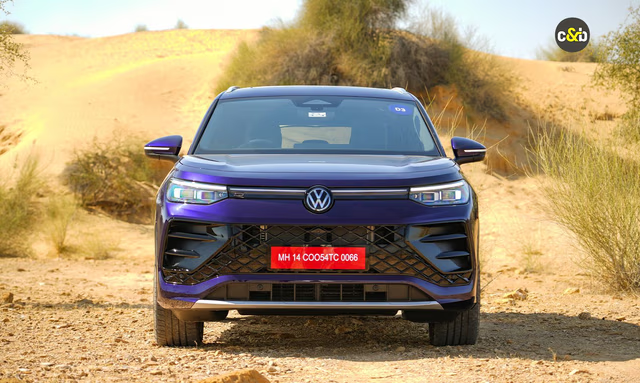Electric Car Will Be Cheaper Than ICE Cars By 2027: BloombergNEF

- We could be 6 years away from EVs achieving cost parity with ICE vehicles
- By 2026, sedans and SUVs may achieve parity.
- Range and charging technology will also improve by then
A report published by BloombergNEF states that there is a long road ahead for electric cars to achieve parity with fossil fuel-powered internal combustion engine vehicles in terms of cost. With the aggressive investment going on in clean energy, electrification efforts and the clampdowns on emissions norms, the report expects that electric car will eventually become cheaper to produce than fossil fuel-based cars by the end of the decade - in 2027.
The report notes that larger vehicles, electric sedans and SUVs will become as cheap as fossil fuel-based alternatives by 2026. Smaller cars need economies of scale a little more in their favour hence they will take a year longer to achieve parity.
One of the key factors driving this change is the falling cost of producing batteries combined with dedicated production lines as many manufacturers commit to building capacity purpose-built for electric cars. This is also helped further with government subsidies which are being offered all around the world.
But this report is relevant for more developed markets. Right now the average cost is $35,000 for an electric car. When these figures are compared with a market like India, that number is more than 5 times the average selling cost of a vehicle in India. But for fossil fuel cars the number is $22,000 which is significantly lower, but still higher for markets like India.

Tesla Model 3 is now the best selling executive sedan in the world
Investment banks like UBS have more aggressive forecasts for electric cars achieving parity with fossil fuel cars. They say this parity will be achieved by 2024.
A study commissioned by transport & environment, Brussels based NGO predicts that the prices of batteries will fall by 58 per cent between 2020 to 2030 and will be reduced to $58 per kWA. Many believe that the cost of batteries going below $100 kWA is an important step in the democratisation of electric cars.
2020 was a great year for electric vehicles, especially in Europe and China. In 2020 China became the largest EV market in the world, but in 2021 the EU has overtaken it. By 2030, the UK government plans to ban the sale of fossil fuels. Many European companies are lobbying for such a ruling for the EU.

Mercedes-Benz Plans To Reduce Usage Of Cobalt In Lithium-Ion Batteries By 10 Per Cent
Another important step is the improvement in the range - many believe the threshold to be reliable 320 kilometres per charge. The range is improving thanks to better software optimisations, on-device AI capabilities with the adoption of advanced silicon, new battery chemistries and also a new breed of solid-state batteries which are expected to be on the horizon by 2025. Faster charging is also a key factor.
Latest News
 Jaiveer Mehra | Feb 5, 2026Honda Dio 125 X-Edition, Shine 125 Limited Edition LaunchedBoth special editions get a variant-specific colour scheme and graphics.1 min read
Jaiveer Mehra | Feb 5, 2026Honda Dio 125 X-Edition, Shine 125 Limited Edition LaunchedBoth special editions get a variant-specific colour scheme and graphics.1 min read Seshan Vijayraghvan | Feb 5, 2026Tata Punch EV Facelift To Be Launched On February 20The electric version of Tata’s SUV-esque hatchback will be launched on February 20, 2026, and, like the petrol-powered version, it will receive a range of visual and feature upgrades.2 mins read
Seshan Vijayraghvan | Feb 5, 2026Tata Punch EV Facelift To Be Launched On February 20The electric version of Tata’s SUV-esque hatchback will be launched on February 20, 2026, and, like the petrol-powered version, it will receive a range of visual and feature upgrades.2 mins read Bilal Firfiray | Feb 5, 2026Hyundai i20 Line-Up Now Starts At Rs 5.99 LakhThree variants of the Hyundai i20 have received a price rejig – Era, Magna and Magna Executive.1 min read
Bilal Firfiray | Feb 5, 2026Hyundai i20 Line-Up Now Starts At Rs 5.99 LakhThree variants of the Hyundai i20 have received a price rejig – Era, Magna and Magna Executive.1 min read Jaiveer Mehra | Feb 5, 2026New Mercedes-Benz V-Class India Launch On March 3The V-class is set to return to the Indian market in Extra Long Wheelbase guise and is likely to be a CBU import.2 mins read
Jaiveer Mehra | Feb 5, 2026New Mercedes-Benz V-Class India Launch On March 3The V-class is set to return to the Indian market in Extra Long Wheelbase guise and is likely to be a CBU import.2 mins read Seshan Vijayraghvan | Feb 4, 2026Skoda Kylaq Crosses 50,000 Units Sales MilestoneThe Kylaq has been the brand’s best-selling car, which has led to Skoda Auto India’s best-ever sales performance in 2025.1 min read
Seshan Vijayraghvan | Feb 4, 2026Skoda Kylaq Crosses 50,000 Units Sales MilestoneThe Kylaq has been the brand’s best-selling car, which has led to Skoda Auto India’s best-ever sales performance in 2025.1 min read Seshan Vijayraghvan | Feb 4, 2026Volkswagen Tayron R-Line’s Pre-Bookings Open For Rs. 51,000Customers can pre-book the SUV for a token of Rs. 51,000; however, the price announcement will take place sometime later in February 2026.1 min read
Seshan Vijayraghvan | Feb 4, 2026Volkswagen Tayron R-Line’s Pre-Bookings Open For Rs. 51,000Customers can pre-book the SUV for a token of Rs. 51,000; however, the price announcement will take place sometime later in February 2026.1 min read
 Bilal Firfiray | Feb 4, 2026Volkswagen Tayron R-Line Review: Sensible Flagship For IndiaVolkswagen has introduced a made-in-India flagship SUV that offers space, comfort, performance, and German driving finesse in a practical three-row package. But is the Tayron R-Line good enough?6 mins read
Bilal Firfiray | Feb 4, 2026Volkswagen Tayron R-Line Review: Sensible Flagship For IndiaVolkswagen has introduced a made-in-India flagship SUV that offers space, comfort, performance, and German driving finesse in a practical three-row package. But is the Tayron R-Line good enough?6 mins read Preetam Bora | Feb 2, 2026TVS NTorq 150 Road Test Review: Bigger, Better & More Efficient!We test the new TVS NTorq 150 out in the real world to get a sense of what it offers in terms of performance, dynamics and fuel economy.7 mins read
Preetam Bora | Feb 2, 2026TVS NTorq 150 Road Test Review: Bigger, Better & More Efficient!We test the new TVS NTorq 150 out in the real world to get a sense of what it offers in terms of performance, dynamics and fuel economy.7 mins read Bilal Firfiray | Jan 21, 2026Tata Punch Facelift Review: New Turbo Engine; Same Old SoulWith the update, the Tata Punch facelift retains its character of being a healthy runabout, which is perfect for Indian roads. But have these changes made it any better?7 mins read
Bilal Firfiray | Jan 21, 2026Tata Punch Facelift Review: New Turbo Engine; Same Old SoulWith the update, the Tata Punch facelift retains its character of being a healthy runabout, which is perfect for Indian roads. But have these changes made it any better?7 mins read Amaan Ahmed | Jan 17, 2026Bajaj Chetak C25 First Ride Review: Basic, Likeable E-Scooter For First-Time RidersThe Chetak C25, in quite a few ways, is poles apart from the larger and more powerful 30 and 35 Series models, but in its mannerisms, it is very much a Chetak.8 mins read
Amaan Ahmed | Jan 17, 2026Bajaj Chetak C25 First Ride Review: Basic, Likeable E-Scooter For First-Time RidersThe Chetak C25, in quite a few ways, is poles apart from the larger and more powerful 30 and 35 Series models, but in its mannerisms, it is very much a Chetak.8 mins read Bilal Firfiray | Jan 9, 2026Toyota Urban Cruiser Hyryder: 10,000 km Long-Term ReviewAfter spending over three months and 10,000 km with the Toyota Urban Cruiser Hyryder Hybrid, we were impressed by its real-world mileage, seamless hybrid, practical comfort, and Toyota reliability. Is it the best C-SUV then?5 mins read
Bilal Firfiray | Jan 9, 2026Toyota Urban Cruiser Hyryder: 10,000 km Long-Term ReviewAfter spending over three months and 10,000 km with the Toyota Urban Cruiser Hyryder Hybrid, we were impressed by its real-world mileage, seamless hybrid, practical comfort, and Toyota reliability. Is it the best C-SUV then?5 mins read



























































































































